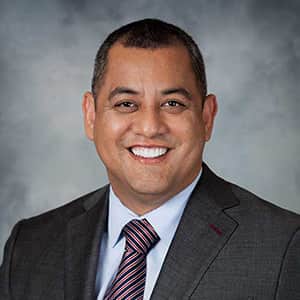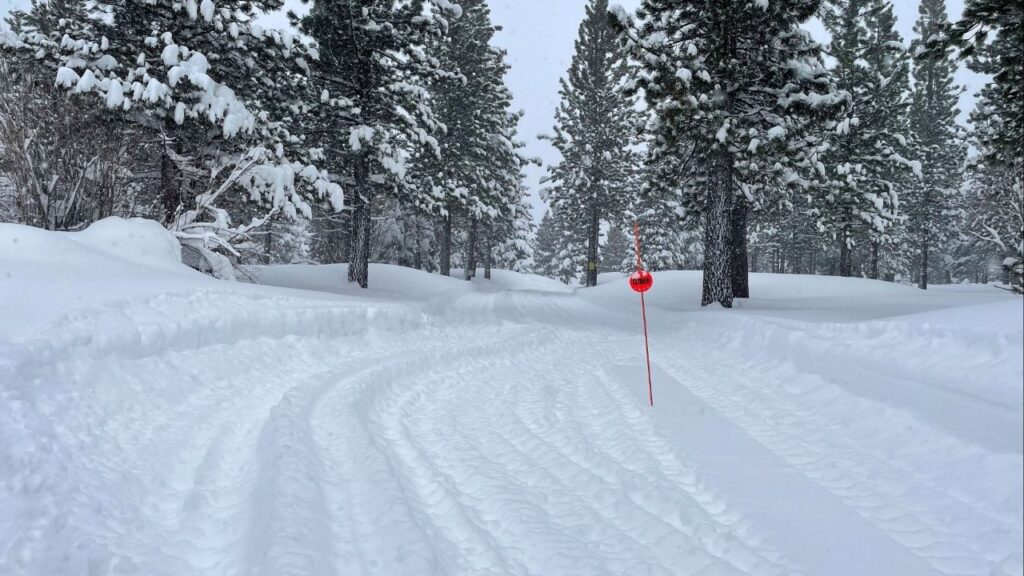Share
There could be fewer places to purchase alcohol in the city of Fresno in the future, potentially making “convenience stores” a little less convenient.
In a longstanding effort to reduce the number of beer, wine and liquor merchants, the Fresno City Council is moving forward to finalize the Responsible Neighborhood Market Act.
Supporters say it will clean up blight and improve neighborhoods.
“What we’re hoping to do is make sure that we’re providing healthier options for some of our young people when they live across the street (from liquor stores), especially for some of our schools that are more and more centralized in the city,” said Cynthia Sapien Rocha, an associate director of programs with the Youth Leadership Institute.
George Beal, president and CEO of Beal Developments, says legislation isn’t needed to reduce liquor stores.
“Free commerce, in my opinion, is the best way to go because if people don’t want it anymore, they’re not going to buy it,” Beal said.
“Anytime cities get these restrictive ordinances, it creates a monopoly for existing retailers. They … make it very difficult for (new retailers) to come into the market, which can oftentimes have negative effects on the community.” — Consultant Michael Brewer
Council Expected to Vote on Thursday
The act would create major changes when granting retailers the permission they need to sell alcohol in the city, known as a conditional use permit (CUP). A retailer also needs permission granted by the state Alcoholic Beverage Control department.
The ABC allows as many as 1 retail license per 1,250 population. That is essentially the current ratio within the city of Fresno. The new rules limit the ratio to 1 per 2,500, a significant reduction compared to state regulations.
Changes at the city level would also include:
— Obtaining and retiring other ABC licenses in order to obtain a new license or upgrade a current one. The number of existing permits that would need to be acquired by a new alcohol retailer would depend on the square footage of the retailer’s store.
— Changing the distance one retailer can operate from another from 500 feet to 1,000 feet.
— Changing the distance alcohol retailers must be from “sensitive” locations from 500 feet to 1,000. Sensitive locations include schools, parks and drug treatment centers.
— Limiting signage and advertising in the store and on the exterior.
— The stricter rules for obtaining a CUP will remain as long as the ratio of retail alcohol licenses exceeds one for every 2,500 residents. According to city staff, Fresno currently has double that number of licenses.
Results Could Take Decades to Achieve
According to state data, Fresno has a population of 545,769. There are 481 active licenses to sell either beer/wine (Type 20) and beer/wine/liquor (Type 21). That equates to a current ratio of one license for every 1,134 Fresno residents.
Given variables, there is no consensus on how long it will take to achieve the intended ratio of one license for every 2,500 residents. In theory, with Fresno’s current population, the city should have only 218 licenses.
To eliminate the “excess” of 263 licenses with the city’s transfer and cancel system, between 65 and 132 new or upgraded stores would need to emerge. Estimates from industry experts on how long that would likely take vary widely, from a few years to, possibly, decades.
Arias Cites Coalition of Supporters
The process started last year when the council directed city staff to develop the framework and language for updating the city’s ordinance. Other city committees have given their thumbs up, including the Planning Commission by a 7-0 vote on Sept. 2.
“Free commerce, in my opinion, is the best way to go because if people don’t want it anymore, they’re not going to buy it.” — Developer George Beal
More changes could come before the final act is decided. The council is scheduled to vote on Thursday at 1 p.m.
Other possible changes include creating a committee of city and industry leaders to discuss issues related to selling alcohol.
Miguel Arias, the Fresno City Council president and author of the ordinance, said the American Petroleum and Convenience Store Association helped draft the plan. Arias also cited the Youth Leadership Institute, beverage wholesalers and retailers, and corporate stores such as Circle K and 7-Eleven as those who helped.
Rocha, with YLI, said Fresno-area youth who are part of the anti-drinking Friday Night Live program helped inspire the legislation.
Michael Brewer, the president of Alcoholic Beverage Consulting in Murrieta, says there are other ways to address the problem.
“They don’t need these extra restrictions. They are unnecessary. The city can choose through its land use process, whether to grant CUPs or not,” Brewer said. “They already have the powers to regulate. It’s like they’re just being overkill,” he added.
Would Stores Like Amazon Fresh Come?
Real estate brokers that GV Wire℠ spoke with said that increased regulations could affect retailers big and small from opening in Fresno.
According to industry experts, supermarkets range from 40,000 to 60,000 square feet and liquor or convenience stores range from 1,500 to 4,00 square feet.
An emerging trend is a smaller grocery store concept, typically 4,000 to 25,000 square feet, that could eventually take hold in neighborhoods all across the city.
Amazon Fresh— which fits the small grocer category — is opening up new stores in northern and southern California, though none have yet been announced for the Central Valley.
“We’re talking about the wealthiest company in the world. They are more than capable of buying multiple licenses and retiring them.” — Councilman Miguel Arias
“They’re discouraging new business from coming into Fresno,” Brewer said. “You have these new concepts where they’re deploying new technology. I found that cities and areas that put up really strong barriers to entry are the last to get the newest concepts, because they look at and say, well, this community is going to be very difficult to license to locate our stores.”
Arias refuted the argument that such restrictions would discourage such supermarkets from opening.
“We’re talking about the wealthiest company in the world. They are more than capable of buying multiple licenses and retiring them in order to open up shop. We’re talking about Wal-Mart and Save Mart — this is the cost of doing business and this is standard across major cities.
“It’s now time for the city to adopt it, to ensure that we’re actually providing the kind of services and conveniences that residents are asking for and what they’ve been asking for a decade, this full service grocery stores in their neighborhoods,” Arias said.
Amazon did not reply for a comment.
Sam Bogdanovich, a broker with Commercial Retail Associates in Fresno, says the trend of smaller grocers hasn’t reached Fresno yet.
“The reality is that the convenience stores are filling the void in certain neighborhoods and taking on a much larger role as the neighborhood grocer,” Bogdanovich said.
He said such restrictions would “push away” smaller retailers, including Amazon Fresh.
Video: New Downtown Market is Example of Growing Neighborhood Grocery Trend
“When the time comes for Amazon to come to town and look at the Central Valley markets, Fresno is going to be at a distinct disadvantage if they have to go buy four liquor license to open stores,” Bogdanovich said. “It seems like the areas where healthy foods are needed to most now have the largest barriers to entry. Liquor licenses are a critical component to the grocery business model regardless of size.”
Undeterred, Arias believes his act will lead to more grocery stores in needed areas.
“You demonstrate that there’s a need, right? The busiest grocery store in the city of Fresno is the FoodMaxx on Highway 99 and Fresno Street — a place that was desert for a full service grocery store. The demand is there. The need is there. But we can’t recruit them if they have to compete with 10 convenience stores and liquor stores within a block radius,” Arias said.
Creating a Monopoly?
Brewer, whose company represents several Fresno clients, says the proposed policy could create haves and have nots.
“Anytime cities get these restrictive ordinances, it creates a monopoly for existing retailers. They … make it very difficult for (new retailers) to come into the market, which can oftentimes have negative effects on the community,” Brewer said.
Bogdanovich, the Fresno commercial real estate broker, says larger grocery stores already have an advantage in buying and selling power, but “they aren’t very active in Fresno right now. In fact, more have closed than opened in the last few years.”
He recommends easing barriers so stores of any size can operate in underserved areas.
“Get rid of the 4:1 for larger grocery stores, especially in saturated zones which it appears don’t have as many larger format full service grocery store options,” Bogdanovich said.
Beal’s company holds five licenses, mostly under the Johnny Quik Food Stores brand. He said the act is a case of government overreach.
“I don’t understand government in the sense that they just want it to control it and say we know better. The customer knows better,” Beal said.
Or Will Act Make it Easier for Groceries to Open?
Rocha, with YLI, found the opposite in her research.
“It was making it very hard to create a competitive market. There were so many stores, that what we found through some of our independent local business owners, is that they weren’t able to draw a market,” Rocha said.
When asked whether the act could affect the opening of grocery stores in underserved areas, Arias reiterated the goal of reducing saturation.
Arias says reducing the saturation would reduce the depressed prices of alcohol. He gave an example of bottled water costing more than a 40-ounce malt liquor.
“When you have a saturation of all these types of businesses that rely heavily on alcohol sales, you pull out and you suck out the limited disposable income people have and therefore you make it difficult for a full service start to come into a neighborhood,” Arias said.
Arias said he would not go as far as controlling the selling price for now.
Limiting Loopholes
Despite a 1998 state law mandating a moratorium for oversaturated licenses in a given city, Fresno has found ways around the law.
Arias says the act will reduce loopholes that allowed approvals of alcohol sellers in saturated areas.
“This reform actually removes a lot of the historical exemptions that were used to continue to approve and saturate the city with offsite liquor licenses,” Arias said.
For a CUP to be approved despite being located in a saturated area, a seller today needs an exemption based on meeting at least one of three criteria: not in an area where the police chief determines it could cause a public health or safety problem and increase law enforcement; alcohol sales are incidental to the overall use of the store; the store must serve as a public convenience.
The new rules would require all three criteria to be met for an exemption to be granted. Also, the rules would require the business to be a “General Market including a supermarket, neighborhood grocery store or a Healthy Food Grocer.”
Arias said that current alcohol retailers will be grandfathered in, but new stores, license upgrades or stores that expand their square footage would be affected.
The Cost of Doing Business
“It was making it very hard to create a competitive market. There were so many stores, that what we found through some of our independent local business owners, is that they weren’t able to to draw a market.” — Cynthia Sapien Rocha, Youth Leadership Institute
Acquiring and canceling licenses could be a cost out of reach for many would-be retailers. The act would require that they must come from within the city and, more specifically, from an oversaturated council district. The current law allows for the license to come from anywhere in the county.
Licenses can be expensive and turned into a commodity, according to industry consultant Michael Brewer.
“You can get into the hundreds of thousands of dollars in expense when you start putting on limitations that they have to buy and market a license in a certain geographic area, because there’s some limited number of licenses in a given community,” Brewer said.
Brewer said, in essence, a prospective alcohol licensee would have to acquire an existing business in its entirety just to obtain its Type 20 or Type 21 license. He estimates a Type 21 license currently can be sold for $55,000 on the open market.
Restricting the purchase of existing licenses to just Fresno is likely to drive the price up even more, Brewer said. He said that could make opening a store in a less restrictive community like Clovis less expensive — and more attractive.
An Opportunity Lost
Every year, ABC approves a limited number of new licenses countywide, based on population increases.
When demand exceeds supply, the licenses are granted through a lottery process. The cost of a new license through ABC is $15,800.
Aziz Muthana, owner of the A & M Westside Market in west Fresno, won a lottery from the state for a Type 21 license last year. But, the city denied any chance for Muthana to utilize that license. In January, the planning commission denied his upgrade application from a Type 20 to Type 21.
“I had a lot of clients who requested (liquor). So I figured I would bring it to them, why not?” Muthana said. His customers told him they would rather not drive across town to buy liquor.
The store had been operating for decades selling under a Type 20 license. Muthana said he rarely experienced problems and doesn’t understand why the city denied his upgrade. He believes denial of licenses should be a complaint-based system.
Muthana does agree that city should restrict more liquor licenses.
“Too many is actually bad,” Muthana said.
Muthana had to surrender the Type 21 license he won. He downplayed the significance it would have on his sales, which he estimates would be about $120 daily profit. He said it would have provided a convenience to his customers.
The planning commission has denied three applications to upgrade licenses this year.
Arias has not heard of any demand for more liquor sellers.
“I have not found one resident whose doors I knocked on, asking me to build one more liquor store in the neighborhood. Every single neighborhood and resident that I’ve talked to has said stop allowing new liquor stores and the alcohol sales in the neighborhood,” Arias said.

Saturation or Convenience?
Arias said the recommendation to expand the distance between alcohol sellers among each other and from sensitive areas to 1,000 feet came from convenience store owners.
“When you go to a thousand, you avoid having four liquor stores in the same corner and the same shopping center,” Arias said. “The saturation forces everyone to reduce the price. It simply invites more blight to the area.”
A convenience store operator who did not want to be named told GV Wire℠ that there are plenty of homeless that congregate behind his central Fresno shop. But it is not liquor that is attracting them — its is drug abuse.
“That’s not the fault of me selling liquor,” he said.
Beal, the Johnny Quik Food Stores operator, disagrees with increasing the distance between retailers. He says his stores are different than a drug store selling alcohol in the same shopping center as one of his stores, less than 1,000 feet away.
“You can’t buy a corndog at a Rite Aid,” Beal said. “(Customers) want to stop at one facility.”
Brewer agrees about the need to limit saturation, to an extent.
“Does another liquor store on the corner where there’s three other liquor stores make sense? Maybe not. But having a CVS, a Whole Foods and a Chevron on the same shopping center that all retail alcohol might make sense because each retailer provides a different niche,” Brewer said.
Driving Farther for Liquor
Arias downplayed the argument that people would have to drive farther in order to purchase liquor at a store.
“There’s 522 opportunities in the city of Fresno to buy liquor and alcohol. There’s literally a liquor and alcohol vendor in every corner in the city. I think it’s safe to say that people can walk. I can walk within five minutes and find just in this corridor (in the Tower District) three liquor stores,” Arias said.
Categories
























